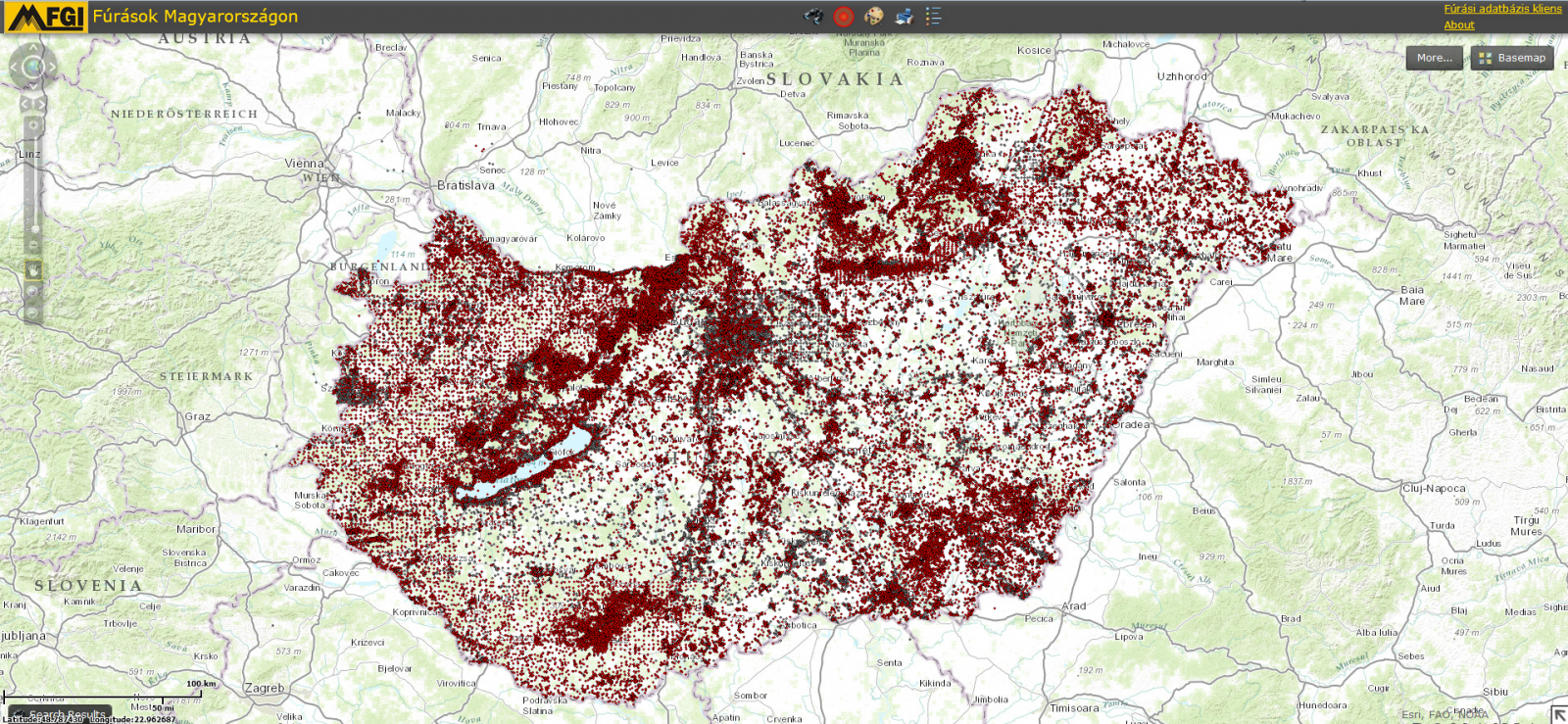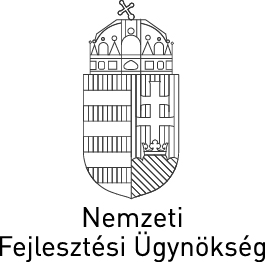Completed projects
More precise data may help transport sector decarbonization
(Completed in December, 2015)
The results of a recently finished project of the Geological and Geophysical Institute of Hungary – National Adaptation Center (MFGI – NAC) may be useful tools to fight climate change. The project was implemented supported by a grant from the National Research, Development and Innovation Fund, and will enable a more precise calculation of transport sector greenhouse gas emissions. The methods developed may be used for emission reduction planning too.
Energy-Conscious Hungary
(Completed in September, 2014)
 Nowadays, it is essential to conserve energy. Developing and introducing energy-conscious habits in our everyday world are big challenges, however these may have a number of advantages. There is a great need for clear and applicable guidance and collected information on these issues. In 2014, The Energy-Conscious Hungary awareness-raising campaign (KEOP-6.1.0/C/11-2012-0007) collected the most important information and transmitted it to the broad public. The project was supported by the New Széchenyi Plan and implemented by the National Adaptation Center of the Geological and Geophysical Institute of Hungary. The aims of the campaign were awareness-raising, shaping attitudes for sustainable development and behaviour patterns.
Nowadays, it is essential to conserve energy. Developing and introducing energy-conscious habits in our everyday world are big challenges, however these may have a number of advantages. There is a great need for clear and applicable guidance and collected information on these issues. In 2014, The Energy-Conscious Hungary awareness-raising campaign (KEOP-6.1.0/C/11-2012-0007) collected the most important information and transmitted it to the broad public. The project was supported by the New Széchenyi Plan and implemented by the National Adaptation Center of the Geological and Geophysical Institute of Hungary. The aims of the campaign were awareness-raising, shaping attitudes for sustainable development and behaviour patterns.
In summer 2014, a media campaign of 12 short animated films presented the Smart Family’s everyday life with concrete energy-conscious examples. The short films tell us that we are able to make changes to act energy efficient and environmentally conscious in all areas of life, for instance in housekeeping, travelling or home improvement. Besides the television and the printed media ads, most of the information was (and is still) available at the official website of the campaign, www.szamitazenergia.hu, where the Smart family’s stories can be watched too.
The project was supported by the European Union, co-funded by the European Regional Development Fund.

The Establishment of the National Climate Change Strategy
(Completed in November, 2013)
 In 2013, The Geological and Geophysical Institute of Hungary accomplished the Establishment of the National Climate Change Strategy (NCCS) Project (KEOP-7.9.0/12-2013-0021), supported by the New Széchenyi Plan.
In 2013, The Geological and Geophysical Institute of Hungary accomplished the Establishment of the National Climate Change Strategy (NCCS) Project (KEOP-7.9.0/12-2013-0021), supported by the New Széchenyi Plan.
The aim of the project was the foundation of the NCCS-2, and the following tasks were realized:
- Evaluation of the implementation process of the first National Climate Change Strategy, according to the obligations on reviewing laid down in paragraph (2) of Section 3 of Act LX of 2007 on the implementation framework of the UN Framework Convention on Climate Change and the Kyoto Protocol thereof (Act LX on UNFCCC).
- The comprehensive socio-economic impact assessment of the NCCS-2.
- A flood risk analysis for all Hungarian settlements to provide an input for climate change sensitivity studies.
- Preliminary examination of horizontal tools to support the implementation of the NCCS-2 (R+I+D, coherence test of the development policies, awareness-raising, monitoring and design of the evaluation system).
- Charting the possible trends of climate change in Hungary by 2030, with an outlook to 2050.
- Establishing a methodology and database, identifying groups affected by certain impacts of climate change, creating sensitivity maps for carrying out territorial climate change impact assessments.
The implementation of the project was a precondition for the elaboration of the second National Climate Change Strategy according to para (2) of Section 3 of the Act LX on UNFCCC. The project was strongly related to the National Energy Strategy of Hungary and the Green Economic Development Programme of the New Széchenyi Plan. The results may help the elaboration of the action plans of the National Energy Strategy, and including climate change issues into the planning process of the Environment and Energy Efficiency Operative Programme of Hungary for the EU financial period 2014-20.
Natural Resource Cadastre
 The object of this project is to elaborate the System Plan and the Conceptual and Feasibility Study of the Natural Resource Cadastre (NRC), describing the conditions for its implementation. The NRC will give an overview of data and information systems registering Hungarian natural resources, and harmonize their approaches and geo-information systems with the NAGiS. The Geo-information System Plan of the NRC will be based on this study.
The object of this project is to elaborate the System Plan and the Conceptual and Feasibility Study of the Natural Resource Cadastre (NRC), describing the conditions for its implementation. The NRC will give an overview of data and information systems registering Hungarian natural resources, and harmonize their approaches and geo-information systems with the NAGiS. The Geo-information System Plan of the NRC will be based on this study.
The effects of climate change on groundwaters
 This project analyses the data series of the groundwater monitoring network and collates them with meteorological time series. The following tasks will be carried out:
This project analyses the data series of the groundwater monitoring network and collates them with meteorological time series. The following tasks will be carried out:
- spatial demarcation based on exposure analysis,
- trend analyses,
- identifying key parameters.






.png)









